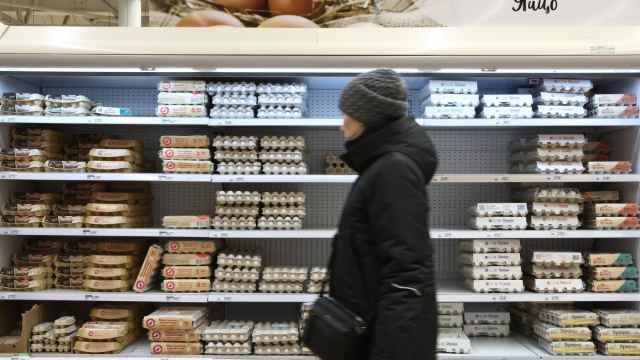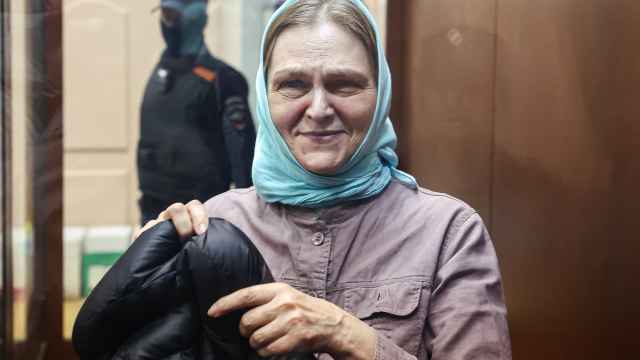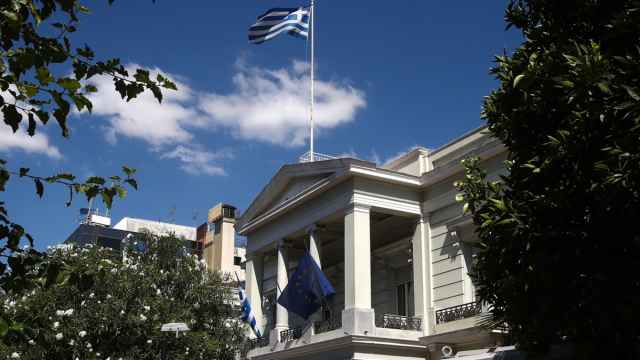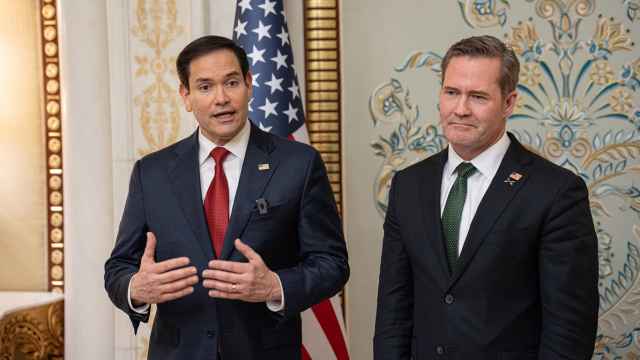French drug maker Ipsen might join a growing number of foreign pharmaceutical companies setting up manufacturing in Russia, as it seeks to expand operations in developing markets, the company said Wednesday.
Ipsen, which hopes to increase sales in Russia by more than 15 percent annually over the next several years, is considering two localization options — establishing partnerships with domestic drug makers and building its own plant, said Marc de Garidel, the company's chief executive.
He said it would take the drug maker several months to come to a final decision on which option to choose.
"Investment in manufacturing is expensive and needs to be considered in a long-term prospective," he told reporters in Moscow.
Ipsen had sales of 57 million euros ($80 million) in Russia last year, according to a presentation it provided.
The company, which aims to increase local sales in both primary care and specialty care segments, opened a local affiliate earlier this year, which was "the first step" before it proceeds with localization, said Jean Fabre, Ipsen's vice president for intercontinental operations.
If Ipsen chooses to set up local production, it will become the first medium-sized European drug maker to launch manufacturing in Russia, said Nikolai Demidov, chief executive of Pharmexpert, a market research company.
Finding a local partner would be the most logical step for Ipsen because it would facilitate access to government funding and reduce risks, while setting up production is justified for bigger companies like Slovenia's KRKA or Hungary's Gedeon Richter, which can boast big sales volumes in Russia, Demidov said by telephone.
Ipsen's market share in Russia is currently 0.5 percent, according to Pharmexpert.
Demidov added, however, that the choice of potential partners is rather limited because a number of local drug makers are already cooperating with foreign firms.
Among recent examples is Belgian UCB Pharma, which signed a memorandum of understanding with local biotech company Binnopharm in April.
Other foreign drug makers, like AstraZeneca and Nycomed, started construction of local plants over the last two years. These moves follow the adoption of a government strategy to develop the country's pharmaceutical industry through 2020, which aims to increase the share of domestically produced medicines.
Ipsen is encouraged by the government's commitment to develop the pharmaceutical industry, De Garidel said, adding that Russia is among the four key markets — which also include China, Brazil and the United States — for the company to grow.
Prime Minister Vladimir Putin said in April that Russia is currently spending only 3.9 percent of its gross domestic product on health care and promised that this figure would reach 5 percent of GDP in the near future — which is still meager compared with the more than 17 percent of GDP spent on health care in the United States, according to the U.S. Department of Health and Human Services.
A Message from The Moscow Times:
Dear readers,
We are facing unprecedented challenges. Russia's Prosecutor General's Office has designated The Moscow Times as an "undesirable" organization, criminalizing our work and putting our staff at risk of prosecution. This follows our earlier unjust labeling as a "foreign agent."
These actions are direct attempts to silence independent journalism in Russia. The authorities claim our work "discredits the decisions of the Russian leadership." We see things differently: we strive to provide accurate, unbiased reporting on Russia.
We, the journalists of The Moscow Times, refuse to be silenced. But to continue our work, we need your help.
Your support, no matter how small, makes a world of difference. If you can, please support us monthly starting from just $2. It's quick to set up, and every contribution makes a significant impact.
By supporting The Moscow Times, you're defending open, independent journalism in the face of repression. Thank you for standing with us.
Remind me later.





